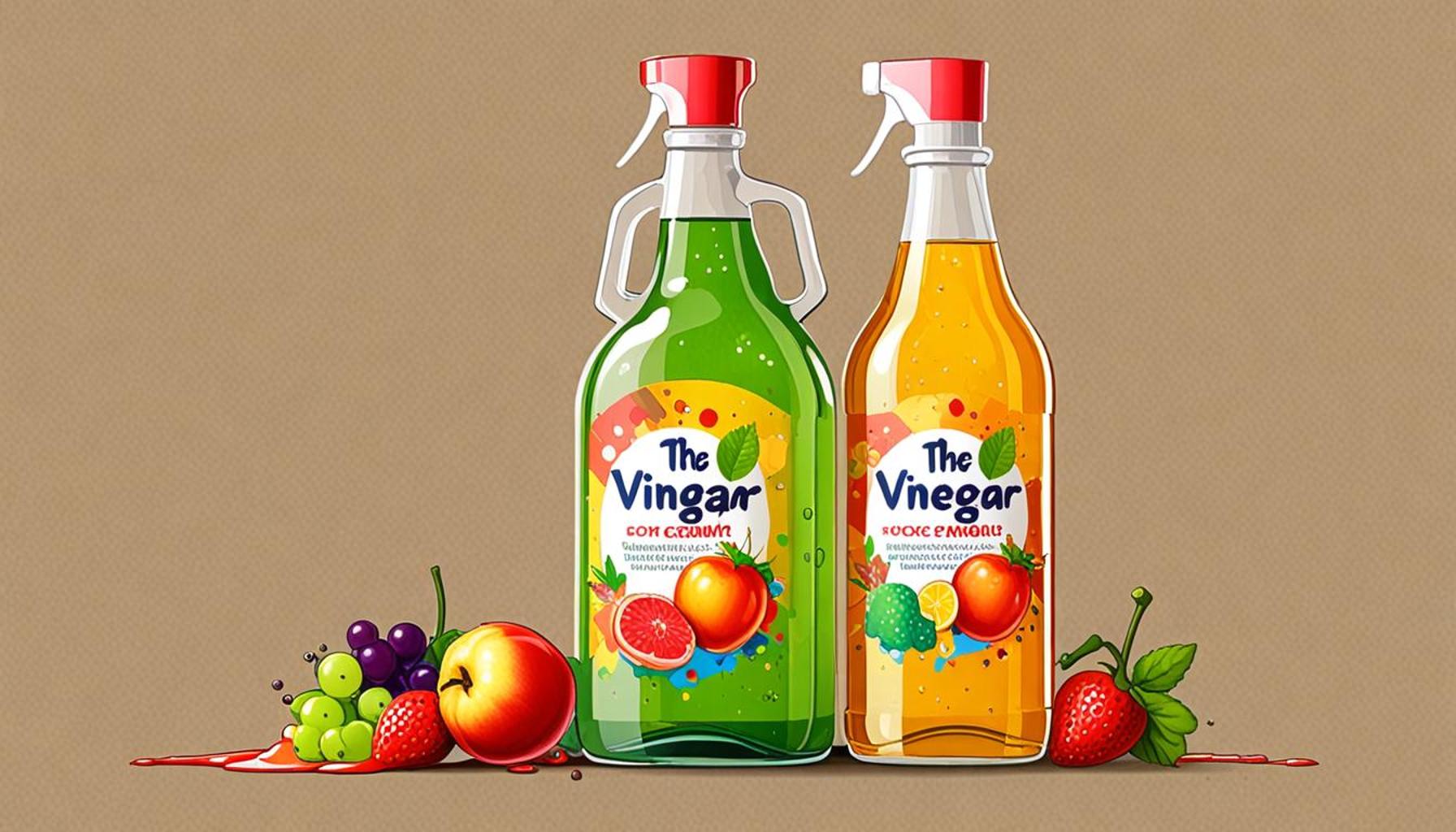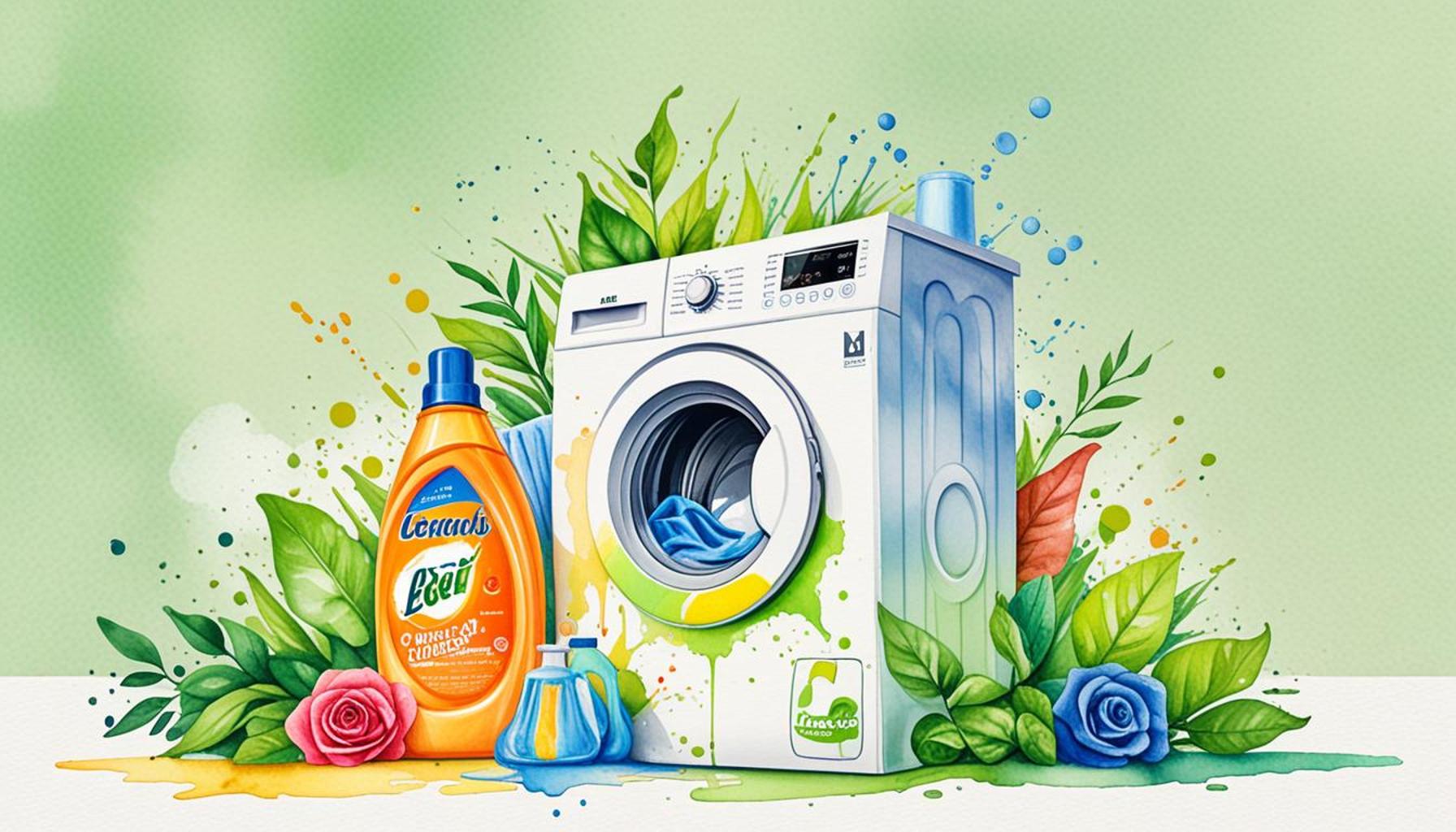Eco-Friendly Ways to Wash Your Dishes Green Cleaning Tips

Embrace Sustainable Cleanliness
In an age where environmental awareness is more critical than ever, the quest for clean dishes can align perfectly with sustainable living. Utilizing eco-friendly ways to wash your dishes is not just about shifting to greener products—it’s about transforming your entire cleaning routine into one that is kind to both your dishes and the Earth.
Making the switch to green cleaning tips can vastly change your home environment. Traditional dishwashing methods often rely on harsh chemicals that can linger on your dishes and in your home, negatively impacting both human health and the ecosystem. Here’s why adopting eco-conscious techniques should be a priority:
- Natural Ingredients: Harness the power of nature with ingredients that you likely already have in your kitchen. For instance, vinegar is a potent disinfectant and deodorizer, making it excellent for cutting grease on pots and pans. Baking soda, on the other hand, serves as a natural abrasive that can scrub away tough stains without scratching your dishware. Lemons not only provide a delightful citrus aroma but their acidity effectively combats stubborn food residues while being gentle on the planet.
- Water Conservation: Traditional dishwashing methods, especially those involving running hot water, can consume up to 20 gallons of water for a single wash. In contrast, eco-friendly practices such as soaking dishes before washing or using a basin method can drastically reduce water usage. By using less water, you’re not only saving on your utility bill but also conserving a vital natural resource.
- Reducing Waste: Emphasizing the use of reusable cleaning tools, like microfiber cloths or biodegradable sponge alternatives, significantly cuts down on the waste generated from single-use products. With many disposable cleaning supplies ending up in landfills, making a small switch can contribute to reducing the abundance of plastic waste harming the environment.
Transitioning to these techniques not only supports a healthier lifestyle but also aligns you with a rapidly growing community that values environmental stewardship and sustainability. From composting food scraps to switching to energy-efficient appliances that require less water, every step counts towards a more eco-conscious home.
As we explore various innovative techniques and sustainable products, consider the positive ripple effect these choices can have on your household, and on a larger scale, the planet. Join the movement of conscientious consumers who are determined to make a difference—one wash at a time.
CHECK OUT: Click here to explore more
Simple Swaps for Effective Dishwashing
To truly embrace eco-friendly dishwashing, it’s essential to start by examining the products and methods we traditionally use. Many common dishwashing detergents are loaded with phosphates and sulfates which can be detrimental to aquatic life when they enter our waterways. Fortunately, by incorporating a few green cleaning tips into your routine, you can maintain cleanliness without compromising environmental integrity.
One effective choice is to create your own natural dish detergent. A simple formula can be achieved by mixing a few tablespoons of castile soap with water in a spray bottle. This gentle yet powerful solution cleans effectively, tackling grease without introducing harmful chemicals. Additionally, adding essential oils such as tea tree or lavender not only enhances the scent but also provides antibacterial properties, ensuring your dishes are both fresh and safe.
Alongside creating your cleaning solutions, the technique you adopt in your dishwashing routine can also make a significant difference. Here are some eco-friendly practices to consider:
- Wash in a Sinkful: Instead of letting the water run continuously, fill your sink with warm, soapy water and soak dishes. This method conserves water and allows food residues to loosen, making them easier to remove.
- Use a Dishwasher Wisely: If you have a dishwasher, ensure it’s fully loaded before running a cycle. Energy-efficient models use less water and energy than hand washing. Look for the ENERGY STAR label to find models designed with eco-friendliness in mind.
- Cool Water Rinse: Rinse dishes with cool water instead of hot. Many dish soaps are effective even in cooler temperatures, which can save energy while also ensuring your dishes are clean.
- Spot Cleaning: Instead of resorting to a full wash for every dish, consider spot cleaning for lightly soiled items. A quick rinse or wipe with a damp cloth can often suffice, thus minimizing both water use and energy consumption.
Transitioning to eco-friendly dishwashing methods not only encourages a cleaner home but also fosters a mindset of sustainability. By shifting how we view our cleaning practices—from a task that uses up precious resources to an opportunity to protect the environment—we can redefine the significance of cleanliness in an eco-conscious way.
As these simple yet impactful methods become routine, you’ll not only feel better about your contributions to environmental preservation but also inspire those around you to consider the impact of their cleaning practices. The journey towards a greener lifestyle begins in your kitchen—let’s dive in!
| Eco-Friendly Method | Benefits |
|---|---|
| Using Natural Ingredients | Reduces exposure to harmful chemicals and promotes cleaner waterways. |
| Bamboo Dish Brushes | Sustainable, biodegradable, and outlast plastic scrubs, conserving resources. |
| Recycled Paper Towels | Less energy-intensive in production, helping to minimize carbon footprints. |
| Eco-Friendly Dish Soaps | Formulated to be biodegradable, ensuring safer disposal. |
Incorporating these eco-friendly practices not only contributes to a healthier home environment but also plays a significant role in protecting our planet. For instance, using natural ingredients like vinegar and baking soda can effectively clean without the impact of traditional dish soaps. By shifting to bamboo dish brushes, and avoiding plastic, we reduce waste and promote products that decompose naturally. These small steps in our daily cleaning routines add up to substantial environmental benefits.Transitioning to recycled paper towels decreases the demand for new materials, effectively cutting down on energy consumption involved in product manufacturing. Furthermore, opting for eco-friendly dish soaps is essential as they are formulated without harmful additives, making them biodegradable and safe for aquatic life. Looking into these green cleaning tips enables individuals to realize that their dishwashing habits can contribute profoundly towards a more sustainable lifestyle.
SEE ALSO: Click here to read another article
Harnessing Natural Ingredients for Dishwashing
In the quest for a greener dishwashing routine, it’s essential to recognize that many effective cleaning agents can be found in your pantry. By leveraging natural ingredients, you can create powerful cleaners that not only get the job done but also maintain a commitment to sustainability. Here are some of the most notable ingredients you can use:
- Baking Soda: Known for its mild abrasive qualities, baking soda is fantastic for scrubbing pots, pans, and dishes. It effectively removes stubborn stains and odors, making it a versatile addition to your cleaning arsenal. Simply sprinkle some on a damp sponge for a gentle scrub that will leave your dishware sparkling.
- Vinegar: This pantry staple is a natural disinfectant. Mixing equal parts vinegar and water in a spray bottle can create an all-purpose cleaner perfect for rinsing dishes or wiping down surfaces. The acidity in vinegar helps cut through grease, and it leaves no harmful residues behind.
- Lemon Juice: The acidity of lemon juice not only smells refreshing but also acts as a natural bleach. Rubbing a lemon half on cutting boards and utensils helps eliminate odors and disinfects surfaces. Adding lemon juice to your dish soap can enhance grease-fighting capabilities while providing a delightful fragrance.
- Salt: Coarsely textured salt can act as a natural scrubber for tough stains. It’s great for cleaning greasy pots or even refreshing your sponges. Its antibacterial properties make it a wonderful alternative to chemical-laden scrubs.
Incorporating these natural ingredients into your dishwashing routine not only benefits the environment but can also be more cost-effective than purchasing commercial cleaning products. Investigating these alternatives can lead to discovering how simple changes in your cleaning habits can yield significant results.
Eco-Friendly Tools for a Sustainable Sink
It’s not just the cleaning solutions that matter; the tools you use for dishwashing can also contribute to a greener environment. Consider making the following choices:
- Bamboo Dish Brushes: These biodegradable brushes are an excellent alternative to plastic scrubbers. Bamboo is a renewable resource, making it an eco-conscious choice that won’t harm marine life when discarded.
- Reusable Cloths: Instead of disposable paper towels for drying and wiping, opt for reusable cloths made from natural fibers. They can easily be washed and reused, reducing waste while still maintaining hygiene standards.
- Silicone Scrubbers: Unlike traditional sponges that harbor bacteria and need frequent replacement, silicone scrubbers are durable, easy to clean, and can be reused for an extended period, thus cutting down on waste.
- Compostable or Biodegradable Sponges: If you prefer sponges for cleaning, look for options made from plant materials that break down naturally at the end of their life cycle, creating less landfill waste.
Shifting to eco-friendly dishwashing tools not only promotes sustainability but also enhances your overall cleaning experience. Using supplies that are biodegradable, reusable, or made from renewable resources reflects responsible consumer habits that resonate well with the growing eco-conscious society.
By thoughtfully evaluating both your cleaning products and the tools you employ, you align your routine with a broader environmental mission. Each conscious decision serves to reduce your carbon footprint while promoting a healthier planet—one dish at a time. This integration of sustainable practices encourages a lifestyle that is not only efficient but overwhelmingly gratifying as you witness the positive impact on your home and the environment.
CHECK OUT: Click here to explore more
Embracing Eco-Friendly Dishwashing Practices
As we navigate the intricacies of a sustainable lifestyle, adopting eco-friendly ways to wash your dishes is a powerful step towards reducing our environmental impact. The natural ingredients found in our kitchens, such as baking soda, vinegar, lemon juice, and salt, offer effective alternatives to commercial cleaning products, addressing stubborn stains and grease without harmful chemicals. Not only are these solutions gentle on your dishes and the environment, but they also carry the potential for significant cost savings.
Moreover, the choice of cleaning tools plays a critical role in this eco-conscious journey. Utilizing bamboo dish brushes, reusable cloths, silicone scrubbers, and biodegradable sponges not only lessens waste but also encourages a shift away from the excessive reliance on plastics. Each decision to opt for sustainable materials contributes to a larger narrative of environmental stewardship—one that resonates with an ever-increasing community of eco-conscious consumers.
Ultimately, transitioning to a greener dishwashing routine is not just about making immediate changes; it’s about fostering habits that promote planetary health for future generations. As you incorporate these green cleaning tips into your routine, consider sharing your commitment to sustainability with others. By collectively embracing these practices, we not only enhance our individual households but also inspire a movement that champions the well-being of our planet.
In conclusion, the shift towards eco-friendly dishwashing is a small yet impactful endeavor that builds a foundation for a cleaner, greener world. With creativity and commitment, we can transform our kitchens into spaces that reflect our values and care for the environment.



